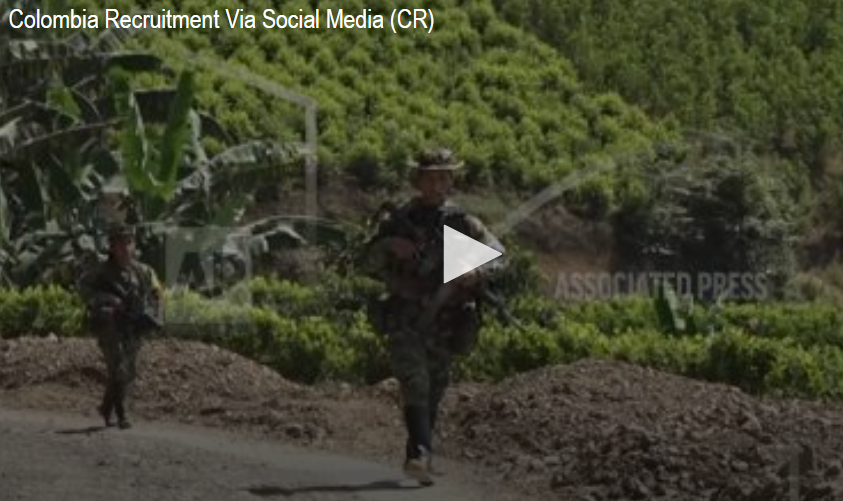Rebel groups in Colombia are using apps like Facebook and TikTok to recruit children and young adults, with the United Nations urging social media companies to do more to moderate content. The U.N.’s top human rights official in Colombia, Scott Campbell, in an interview with The Associated Press (AP) said more investment is needed in both automated tools and human moderators to take down videos posted by gangs and rebel groups that are targeting youth from marginalized communities.
Colombian rebel groups such as the FARC-EMC are increasingly posting videos that glamorize life in their ranks and urge youth to enlist. Campbell said these companies are not putting enough resources into online content moderation in the global south.
He pointed to Colombia as an example of how “grave” the threat can be for children and Indigenous communities and called companies to take more action in the global north, where they feel the most political pressure. Campbell, who previously served as a human rights and technology specialist at the U.N.’s Geneva office, said he recently met with representatives from Meta, which owns Facebook, to discuss how rebel groups and gangs can be stopped from using the company’s platforms to recruit young people.
He said the company pledged to work on the problem and is also seeking a meeting with TikTok representatives. In an email, Meta said the company has a policy of banning terrorist organizations from using its platforms and that it is collaborating with law enforcement to fight efforts to recruit children. “We also collaborate with other companies to share information and take actions against these evolving threats across the internet,” Meta said.
TikTok did not immediately respond to requests for comment. The recruitment of children has become a major problem in rural areas of Colombia that are disputed by the military, drug gangs and rebel groups. According to Colombia’s Human Rights Ombudsman, 409 children were recruited into rebel groups in the South American nation last year, twice as many as in 2023. The U.N. recorded 216 cases of forced recruitment of minors in Colombia last year.
The problem has been particularly striking in Cauca province in the southwest, where fighting has intensified as rebel groups try to fill a power vacuum left by the Revolutionary Armed Forces of Colombia, the guerrilla group that made peace with the government in 2016. Anyi Zapata, a humans rights specialist with ACIN, an Indigenous association in Cauca, said rebel groups there have long targeted vulnerable children, offering them money to do small favors and gifts like cellphones.
Now they are posting videos on social media that show members with motorcycles, SUVs and adventurous lifestyles. The images often show logos of rebel groups.
Campbell said that even when accounts are taken down, they can be replaced by others. He said social media companies need to share their information on such accounts with Colombian prosecutors, who can file charges against people posting the content.


